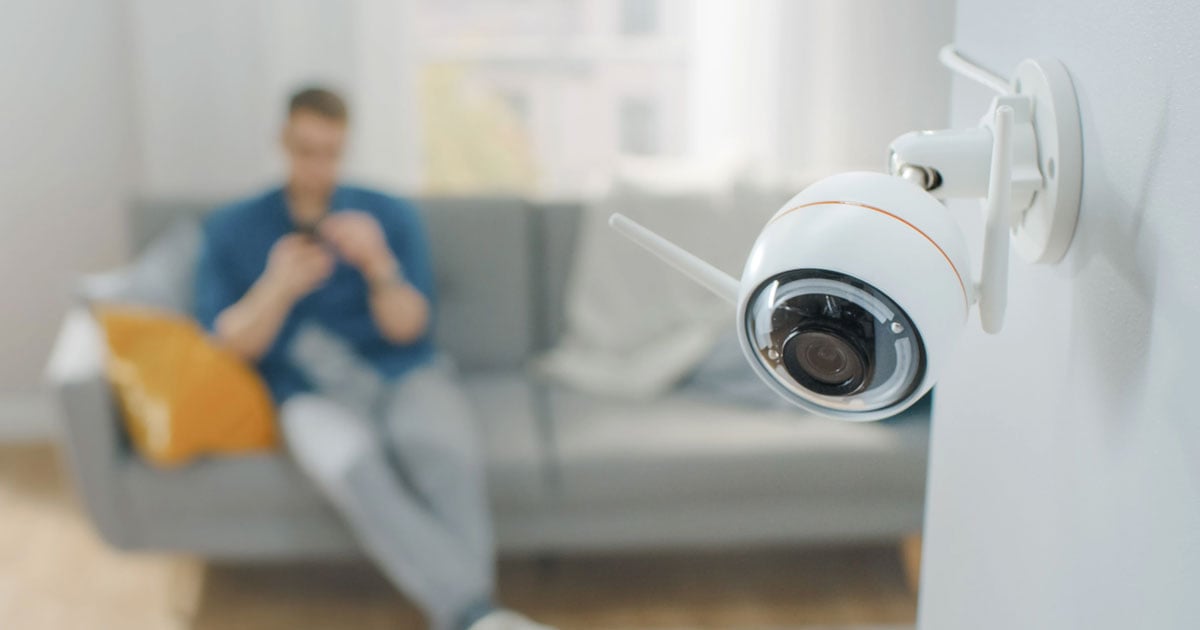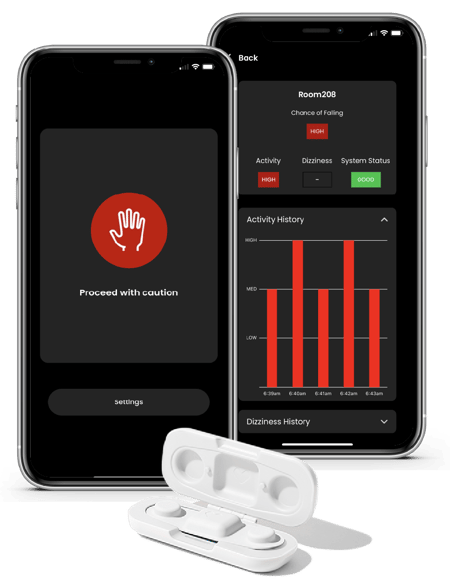Falls in nursing homes often signify serious risks, potentially leading to grave injuries or even...


If you’re worried about a loved one, then the chances are you’ve worried about them falling. It’s not uncommon for older adults to fall as they get older, but you may be wondering what it means.
Falls can be triggered by dehydration, infection, certain medications, sight changes, hearing loss, and some other reasons. It’s always best to rule out what is causing the person to fall to take the necessary action.
Don’t worry. We’ll delve deeper into what you need to know about what it could mean so that you can have an insight into the matter at hand.
Check for Signs of Dehydration
If an older person is often falling, it could be because of dehydration. When dehydration is added into the mix, the risk of falling is increased considerably. Here are some ways to check for dehydration:
-
Dry mouth: In almost every case of dehydration, the person will have a dry mouth because they have not had enough fluids.
-
Fatigue: If the individual is overly tired, this is another sign of dehydration, but fatigue can be linked to various other health conditions.
-
Light-headedness: A lack of the appropriate liquids can also leave people feeling light-headed.
-
Confusion or Disorientation: A medical professional should always check this out if it’s a new thing, but it could be another sign that the individual needs more liquids.
-
Fainting: It’s not uncommon, and the risk of injury from fainting is high, so always be on the lookout.
-
Loose skin: If the skin does not return to normal after pinching, there’s a good chance there’s a form of dehydration at play.
-
Urinating less than usual: If people have plenty of liquids, they urinate more often. The opposite happens when there are not enough liquids.
It’s crucial to always be on the lookout for signs of dehydration because it can cause a whole host of problems with your senior’s health.
How to Avoid Dehydration

If you want to help avoid dehydration, the rule of thumb is to make sure the person is eating and drinking things that don’t cause dehydration. Coffee, sugary drinks, and even alcohol encourage dehydration.
The best thing to do is to encourage fluids that are none of the above. Water is a great way to make sure you keep dehydration at bay.
The pivotal part is to catch dehydration early, and knowing the signs is the best way to prevent it. There are some medicines to help speed hydrate a dehydrated individual, but always check with a medical professional if it is recommended.
Impaired Vision: One of the Most Common Causes of Falls in Elderly

It’s no surprise that our vision deteriorates as we get older, meaning that it’s more difficult to avoid obstacles that could be in the way. Still, it’s also possible that Cataracts and Glaucoma could be to blame.
Any sudden change in eyesight should be investigated by a medical professional, but it’s also possible their vision has been slowly deteriorating over the years. Having the proper support is imperative to make sure they don’t fall and get hurt.
The best way to help an elderly person with impaired vision is to support them. Speak through the issues they are having and if there are any particular areas they feel uneasy the most. You might find that subtle changes in the house will make it a much safer environment for the person involved.
Other ways to help stop falls due to impaired vision:
-
Be sure the home is well-lit: This is a great way to allow the person to see more of what is going on in the house. If their vision is deteriorating, it will be more challenging to see things in a dim room, thus, leading to more falls.
-
Have their eyes checked every year: This is crucial for people of all ages, but more so in the elderly, because deterioration can be significantly more accelerated.
-
Know the room: If you leave an elderly person in the house with impaired vision, you need to be sure the house is the same. For example, do not leave anything out you wouldn’t usually leave out.
How to Prevent Falls
You’re going to want to find a way to prevent falls if you or someone you look after is struggling to maintain their balance. Here are some of the best tips:
-
Pick the proper footwear: This is essential. Make sure they are non-slip soles to help keep the person upright.
-
Leave lights on at night: Even at night, you’re going to want to keep some light, so consider night lights throughout the home.
-
Ditch the rugs: Rugs are prone to ruffling, creating obstacles that some might not see coming.
-
Utilize handrails: These are next to the bed, next to bathtubs, and on either side of the stairs because they give much-needed support should they be required.
-
Make sure hearing is fine: The last thing you want is not to hear something falling. Have hearing checked regularly.
Don’t Be Afraid to Ask for Help

As we have established, there are many reasons why someone could fall, but it’s always best if someone is there to help them work through the reasons why they could be falling. Ensuring the person knows asking for help is nothing to be ashamed of is important because many people don’t like to rely on someone else when these things happen.
As long as you are aware of the signs associated with any of the above issues, you should be able to help them through it. It’s always best if the elderly person in question has someone close to them that can step in and help, but that’s not always the case.
In those instances, try to make sure someone, possibly a neighbor or a caregiver, is able to check-in and report back should you have issues contacting your loved one. This will also help keep your mind at ease.
References:
https://www.stayonyourfeet.com.au/updates/dehydration-can-lead-to-falls-in-older-adults/
https://www.healthinaging.org/blog/having-poor-vision-can-raise-risk-for-falls-among-older-adults/
https://www.mayoclinic.org/diseases-conditions/dehydration/symptoms-causes/syc-20354086





